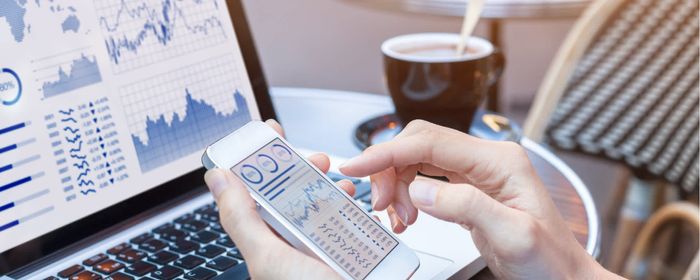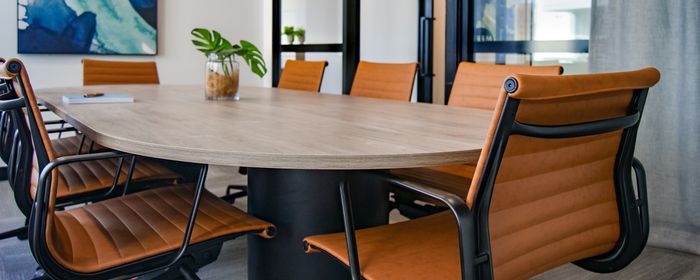The security industry — as well as the role of security professionals — is changing rapidly with the current climate. Security has long been viewed as a front line defense in place to protect and secure environments, people, places, and, more recently, data. Every circumstance and industry or sector has its own set of challenges, but not even the most seasoned IT and security experts were prepared to cope with the Covid-19 pandemic’s short- and long-term effects.
Security expert Alfonso Hooker, Senior Director of IT at Rally Health was able to quickly adapt and pivot protocols to keep employees safe in the Covid-19 environment. With 25 years of IT experience, Hooker has seen it all and worked across every sector from biotech, finance, banking, government, retail, and now healthcare. He spent time working on projects for FEMA and was a subcontractor for the Department of Homeland Security, and has a unique insider’s perspective on the friction that exists not only across sectors but between physical and digital security.
“Both industries — the private and public sectors — would benefit from how the other operates,” Hooker said. “The government space does a really good job of physical security and I think the tech industry does a good job with velocity and deploying and adopting new technology. If we could marry both of those worlds we could have a better UI system for people to receive unemployment benefits, better universal healthcare systems in place, and better partnerships.”
Friction Points in the Industry
The healthcare industry is a unique challenge from IT’s standpoint because of the sheer volume of data that exists. There is so much data out there to manage and secure, the reality is there are more people creating data than there are securing it. If companies were to shift the thinking behind data security to a shared responsibility model and heavily invest in user education around security, Hooker says that would be a game changer.
“The model of ‘if you do something wrong you’re going to be fired,’ doesn’t work,” said Hooker. “People will only do the bare minimum so they don’t get in trouble, but if you include them in your security program then you allow them to participate, provide suggestions, and be partners in the program.”
Creating a Productive Remote-First Workforce
As the Coronavirus hit the U.S. and lockdowns were put in place, the transition from working in an office to working from home happened almost overnight for most people. The new dynamic of being at home 24/7 and disconnected from everyday interactions can take a huge toll on mental health and wellness. What people need right now is feeling assured and guided that they are supported, understood, and have an employer who cares. Rally Health has eight offices across the U.S. with two in the San Francisco Bay Area, and thanks to the effort of Hooker and his security team, all employees were equipped to work remotely within just a week.
“It’s due to how nimble my team is and how invested they are in understanding what those needs look like,” Hooker said. By partnering closely with vendors, Rally Health was able to distribute extra computer monitors that were delivered directly to employees’ homes to avoid any travel into the office. Developing a remote-first, functional, and productive approach included adopting numerous collaboration tools, SaaS tools, and making time to connect with people to talk about non-work related topics.
“On my team I do ‘working sessions’ where I pair with my team and we just talk about life and non-work related stuff, going on in our lives,” Hooker said. “I check in with them and ask about their families. It’s necessary because I usually would have these conversations in person and now you have to figure out how to have them remotely. They are more important than ever.”
Preparing to Return to Work
Although Rally Health is now 100% remote, the security, facilities, and office teams are examining what it means to prepare for the possibility of eventually bringing employees back into the office. Like many workplaces, Rally Health has an open floor plan that has worked in the past, but that may no longer be the case. To prepare to bring employees back, the first step is consulting government safety guidelines from the CDC and OSHA on spacing, social distancing, and maximum capacity. Rally Health offered a daily cafeteria-style lunch program that will now have to be modified to accommodate this “new normal.”
Hooker explains that although they don’t have a complete road map for how the office will look and be changed, he knows it will look very different – and feel very different. There is a high likelihood that flexible work schedules will be implemented including split schedules and staggered hours based on each individual’s circumstances.
“Maybe every other desk will be occupied, potentially partitions up, and people wearing PPE,” Hooker said. “We have to figure out how to make accommodations without putting people’s health at risk. This has changed us permanently as people; we just have to accept that and hopefully we can get back to some semblance of normal in the future. We have to support one another in this fight.”
The narrative across the security industry is rapidly shifting from a security mindset to a safety mindset, and that philosophy is powering the success behind Hooker’s efforts.
“It has to be health and safety first,” said Hooker. “Then, from that point, how do we continue to be productive?”




